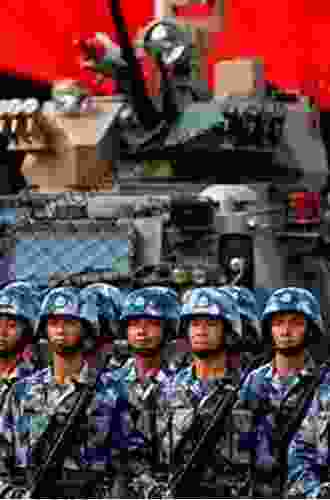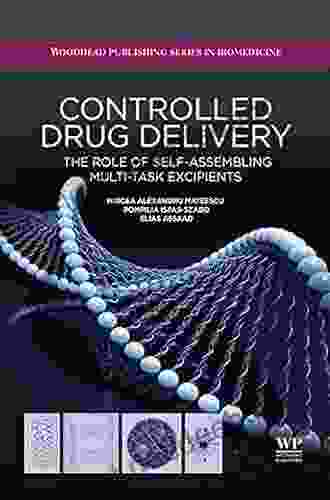Tradition and Transformation: Asian Security Studies for the 21st Century and Beyond

4.3 out of 5
| Language | : | English |
| File size | : | 9078 KB |
| Text-to-Speech | : | Enabled |
| Screen Reader | : | Supported |
| Enhanced typesetting | : | Enabled |
| Word Wise | : | Enabled |
| Print length | : | 314 pages |
Asian security studies have a long and rich history, shaped by diverse cultural and historical contexts. In the 21st century, the field is undergoing a period of profound transformation, driven by globalization, technological advancements, and shifting geopolitical dynamics. This article explores the interplay between tradition and transformation in Asian security studies, examining the enduring influence of historical and cultural factors alongside the emergence of new challenges and opportunities. By understanding these dynamics, we can better navigate the complex and evolving security landscape of the Asia-Pacific region.
Traditional Approaches to Asian Security
Traditional approaches to Asian security studies have emphasized the importance of historical and cultural factors in shaping regional security dynamics. These approaches often draw on concepts such as the balance of power, strategic culture, and national identity to explain state behavior and conflict patterns. For example, the concept of the "Mandate of Heaven" played a significant role in Chinese foreign policy for centuries, shaping its interactions with neighboring states and its view of its own role in the region. Similarly, the samurai tradition in Japan influenced its military thinking and strategic decision-making.
Traditional approaches also highlight the role of geography in Asian security. The Asia-Pacific region is characterized by a diverse and complex geography, including vast oceans, mountain ranges, and numerous islands. This geography has influenced the development of maritime security strategies, border disputes, and territorial claims. For example, the South China Sea has been a source of tension and conflict among several Southeast Asian states, due to its strategic location and its potential for economic resources.
Emerging Trends in Asian Security
In recent decades, Asian security studies have been transformed by a number of emerging trends, including globalization, technological advancements, and shifting geopolitical dynamics. Globalization has led to increased interconnectedness and interdependence among states, creating new opportunities for economic cooperation and collaboration. At the same time, it has also raised new security challenges, such as transnational crime, terrorism, and the spread of weapons of mass destruction.
Technological advancements have also had a profound impact on Asian security. The proliferation of new technologies, such as artificial intelligence, cyberweapons, and hypersonic missiles, has changed the nature of warfare and created new threats to regional stability. For example, the rapid development of China's military capabilities, including its advanced missile systems and cyber warfare capabilities, has raised concerns among its neighbors and the United States.
Shifting geopolitical dynamics are also shaping the security landscape in Asia. The rise of China as a major global power has challenged the existing regional order and led to increased competition and uncertainty. The United States, which has long played a dominant role in the Asia-Pacific region, is now facing a more assertive China and seeking to maintain its influence in the region. These geopolitical shifts have created new security dilemmas and uncertainties, and have made it more difficult to predict the future trajectory of regional security.
Challenges and Opportunities for Asian Security Studies
The interplay between tradition and transformation presents a number of challenges and opportunities for Asian security studies. One of the key challenges is to find ways to bridge the gap between traditional approaches and emerging trends. Traditional approaches can provide insights into the historical and cultural factors that have shaped regional security dynamics, but they need to be updated to account for the new challenges and opportunities presented by globalization, technological advancements, and shifting geopolitical dynamics.
Another challenge is to develop new theoretical frameworks and concepts that can help us understand the evolving security landscape in Asia. The existing theories and concepts may not be adequate to explain the complex interactions between traditional and emerging factors, and new approaches are needed to capture the nuances of regional security dynamics. This will require interdisciplinary collaboration and the integration of insights from a variety of fields, including political science, history, economics, and sociology.
Despite these challenges, there are also a number of opportunities for Asian security studies in the 21st century. The growing importance of the Asia-Pacific region in global affairs creates a demand for more research and analysis on regional security issues. The increasing interconnectedness and interdependence among states in the region also provides opportunities for cooperation and collaboration on common security challenges. By fostering dialogue and collaboration among scholars, policymakers, and practitioners, Asian security studies can contribute to a more secure and stable future for the region.
Asian security studies is a dynamic and evolving field, shaped by a complex interplay between tradition and transformation. Understanding the enduring influence of historical and cultural factors, while also recognizing the profound impact of emerging trends, is essential for navigating the challenges and opportunities facing the region in the 21st century. By bridging the gap between traditional and emerging approaches, developing new theoretical frameworks, and fostering collaboration among scholars, policymakers, and practitioners, Asian security studies can contribute to a more secure and stable future for the Asia-Pacific region.
Further Reading
- Asian Security: Between Tradition and Transformation
- Tradition and Transformation in Asian Security
4.3 out of 5
| Language | : | English |
| File size | : | 9078 KB |
| Text-to-Speech | : | Enabled |
| Screen Reader | : | Supported |
| Enhanced typesetting | : | Enabled |
| Word Wise | : | Enabled |
| Print length | : | 314 pages |
Do you want to contribute by writing guest posts on this blog?
Please contact us and send us a resume of previous articles that you have written.
 Page
Page Chapter
Chapter Text
Text Story
Story Genre
Genre Reader
Reader Magazine
Magazine Newspaper
Newspaper Sentence
Sentence Shelf
Shelf Preface
Preface Synopsis
Synopsis Annotation
Annotation Footnote
Footnote Manuscript
Manuscript Scroll
Scroll Codex
Codex Classics
Classics Library card
Library card Biography
Biography Autobiography
Autobiography Reference
Reference Encyclopedia
Encyclopedia Dictionary
Dictionary Resolution
Resolution Card Catalog
Card Catalog Borrowing
Borrowing Archives
Archives Periodicals
Periodicals Study
Study Research
Research Academic
Academic Journals
Journals Reading Room
Reading Room Rare Books
Rare Books Interlibrary
Interlibrary Study Group
Study Group Storytelling
Storytelling Awards
Awards Reading List
Reading List Christian Welzel
Christian Welzel Harley Reid
Harley Reid Robert W Gehl
Robert W Gehl Clare R Kilbane
Clare R Kilbane Harlow Giles Unger
Harlow Giles Unger Robert Viagas
Robert Viagas Rafael Bernal
Rafael Bernal Ian Hurd
Ian Hurd Jeffrey A Becker
Jeffrey A Becker Karl Wiegers
Karl Wiegers Terry L Harmon
Terry L Harmon Abi Morgan
Abi Morgan Michael Crawley
Michael Crawley Lisa Mccormick
Lisa Mccormick Jenn Nixon
Jenn Nixon Lacy Brejcha
Lacy Brejcha Kenneth Cline
Kenneth Cline Thomas Fleming
Thomas Fleming Evelyne Cole
Evelyne Cole Rebecca Mackinnon
Rebecca Mackinnon
Light bulbAdvertise smarter! Our strategic ad space ensures maximum exposure. Reserve your spot today!
 Herbert CoxFollow ·11.6k
Herbert CoxFollow ·11.6k Aubrey BlairFollow ·8.4k
Aubrey BlairFollow ·8.4k Galen PowellFollow ·10.2k
Galen PowellFollow ·10.2k Kirk HayesFollow ·17.9k
Kirk HayesFollow ·17.9k Edmund HayesFollow ·9.1k
Edmund HayesFollow ·9.1k Bryce FosterFollow ·15.5k
Bryce FosterFollow ·15.5k Camden MitchellFollow ·8.6k
Camden MitchellFollow ·8.6k George BellFollow ·16.4k
George BellFollow ·16.4k

 Diego Blair
Diego BlairUnveiling Hidden Crete: A Comprehensive Review of Richard...
In the tapestry of travel literature,...

 Earl Williams
Earl WilliamsNew Addition Subtraction Games Flashcards For Ages Year
Looking for a fun...

 Julio Ramón Ribeyro
Julio Ramón RibeyroUnveiling the Nexus of Educational Politics and Social...
Education, a fundamental pillar of society,...

 Jordan Blair
Jordan BlairTrains, Planes, Ships, and Cars: The Evolution of...
Transportation...

 Derek Bell
Derek BellFalling for Rachel Stanislaki: An Unforgettable Literary...
Step into the...

 Harry Cook
Harry CookAn Introduction to Cardiac Surgery for Anesthesia...
Cardiac surgery is a specialized...
4.3 out of 5
| Language | : | English |
| File size | : | 9078 KB |
| Text-to-Speech | : | Enabled |
| Screen Reader | : | Supported |
| Enhanced typesetting | : | Enabled |
| Word Wise | : | Enabled |
| Print length | : | 314 pages |












